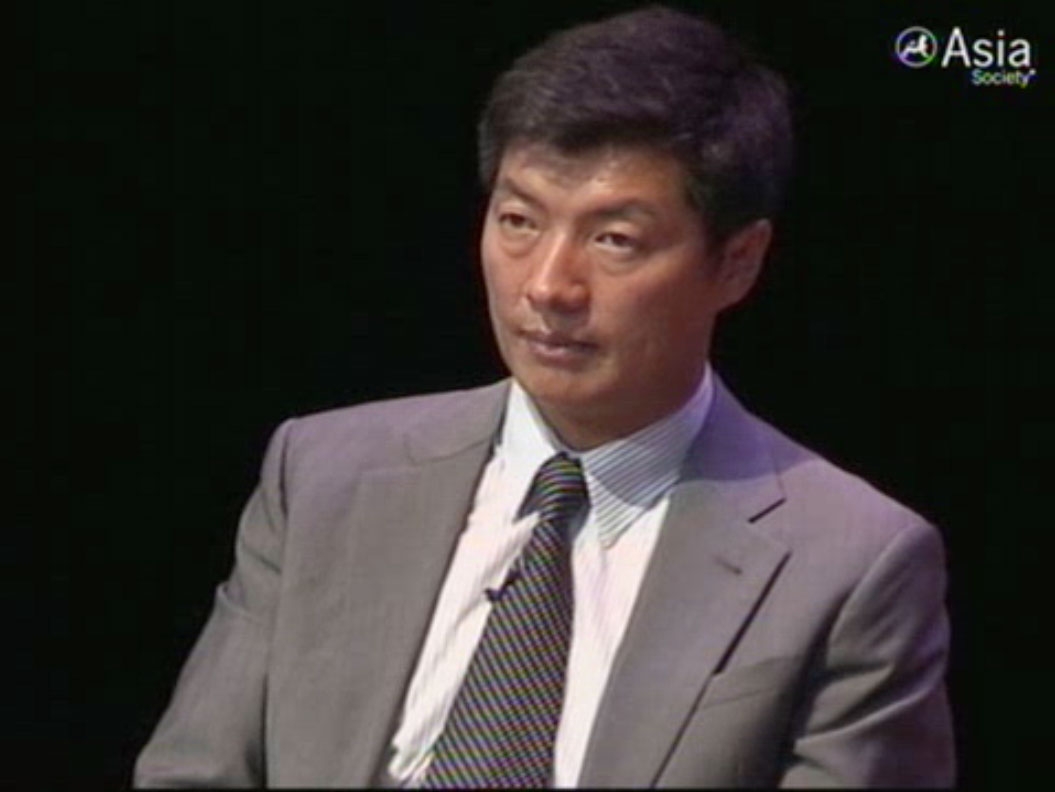Defining a 'Middle Path' for Tibet and China

NEW YORK, July 19, 2011 — Dr. Lobsang Sangay, the newly elected Kalon Tripa (or Prime Minister) of the Tibetan Government in Exile, said Tuesday evening that autonomy was the goal for Tibet — but, he stressed, "autonomy is not a stepping stone for independence."
Sangay was speaking at the Asia Society in New York about the new responsibilities and challenges he will inherit from the Dalai Lama, who is retiring from his political duties. Asia Society Executive Vice President Jamie Metzl moderated the event.
In April, Sangay was elected, in his words, by votes of Tibetans "from Australia to Alaska, New York to New Delhi, including Tibetans on the edges of Tibet," winning about 55 percent of the vote.
"Tibetans are scattered in nearly 30 countries," said Sangay, 43, who was born in India, studied at Harvard Law School and has never set foot in Tibet. "Inside Tibet we have around 60 million Tibetans, and outside we have 150,000 Tibetans. [I] represent all of them, and now with the devolution of the power of his Holiness, the Dalai Lama, I am the political leader of the Tibetan people."
Sangay, a former Asia Society Asia 21 Young Leaders Fellow, listed three primary goals: First, restore autonomy in Tibet and return the Dalai Lama to Lhasa; second, create awareness of and seek international support for Tibet; third, to provide education, health and welfare to the exiled Tibetan people.
Sangay made his position on relations with China very clear: The Tibetan Government in Exile would not seek independence, but a "middle way," a "genuine autonomy" without complete emancipation from China.
"His Holiness the Dalai Lama says we would like to live in China, with the Chinese, if we are granted autonomy. Not independence — autonomy," Sangay said.
Regarding the next Dalai Lama, and who should choose him, Sangay was adamant that the choice belongs only to the current Dalai Lama, and that any state-backed selection by the Chinese government would lack legitimacy.
"If you talk in terms of authority, legitimacy and credibility, the next Dalai Lama will be determined and decided by the present Dalai Lama for sure," said Sangay. "Sometimes the media tries to make it a competition of some sort — they'll be rival Dalai Lamas, they'll be competing Dalai Lamas. No rival Dalai Lamas, no competing Dalai Lamas. ...
"Tibetans, our heart and faith will be with the Dalai Lama. If his Holiness says he will be born outside [of Tibet], the boy born outside will have our heart and faith and our loyalty, not the one the Chinese government appoints or props up."
Addressing the younger generation of Tibetans, Sangay said that they must "understand the urgency of the situation" and claim autonomy for Tibet before it is too late.
"I think during our lifetime, Tibet might remain on the map of the world or disappear from the map of the world," Sangay said. "Tibetan people might remain as people with identity and dignity, or we might become museum pieces."
Reported by Bryan Le